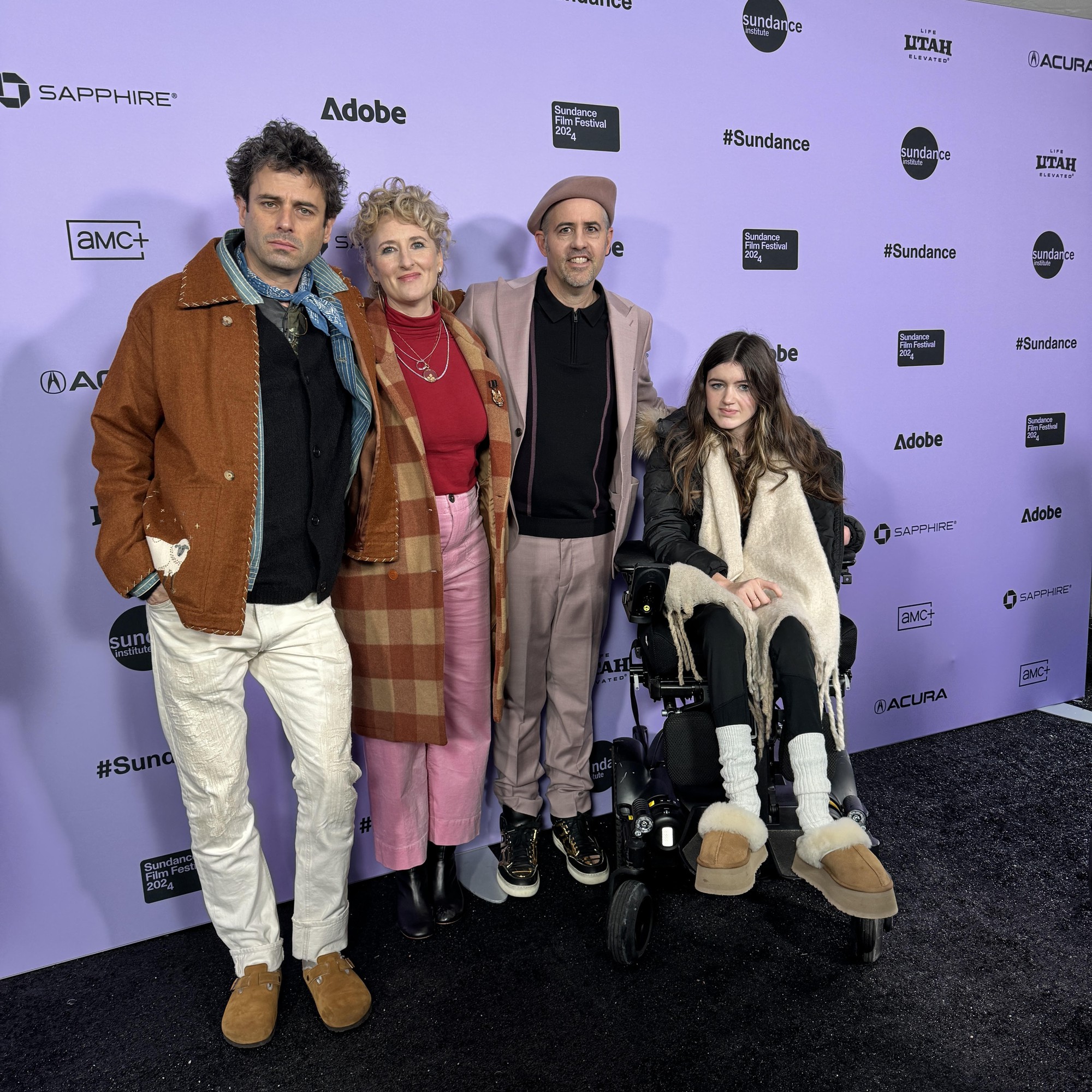Oscars 2024 Q&A: Composer Laura Karpman talks scoring for film ‘American Fiction’

Laura Karpman adjusts her shirt for a photo. The composer, who previously lectured at the School of Theater, Film and Television, earned her first Oscar nomination for scoring the comedy-drama “American Fiction.” (Courtesy of Amanda Witt)

By Sanjana Chadive
Feb. 21, 2024 1:25 p.m.
This post was updated March 10 at 8:21 p.m.
Unlike Thelonious Ellison, Laura Karpman wants to be recognized for her acclaimed composition.
The composer, who was previously a lecturer at the UCLA School of Theater, Film and Television, recently earned her first Oscar nomination for scoring “American Fiction.” Recognized in four other categories by the Academy of Motion Picture Arts and Sciences, the comedy-drama follows a disgruntled novelist who finds unlikely success after publishing a satire on the tropes associated with African American literature.
Ahead of the award ceremony, Karpman spoke with the Daily Bruin’s Sanjana Chadive about her approach to composing jazz-infused tracks and her personal connection to the film.
This interview has been edited for length and clarity.
[Related: Q&A: Justin Hurwitz discusses musical adaptations for La La Land in Concert]
Daily Bruin: How did you go about selecting the instruments that were prominently featured in the score, such as the piano and flute?
Laura Karpman: The title character (in “American Fiction”) is called Thelonious “Monk” Ellison. Thelonious Monk, of course, was a great jazz musician, pianist and composer. I think that the suggestion of jazz was completely obvious. The question was, how do you do it? How do you have a score that has so many emotional rises and falls, arcs and peaks, tragedy, comedy, satire – how do you do all of that with the stylistic parameters of jazz, but within the context of scoring for film? That was kind of the call to action of this particular project.
Monk was a pianist, so it started with that. I had just restored a 1927 Steinway (piano) of my father’s, and it belonged to a guy named Sydney Guilaroff. Sydney was MGM’s chief hairstylist during the golden age of Hollywood. He dyed Lucille Ball’s hair red. Marilyn Monroe, Rita Hayworth – he did all of these people’s (hairstyles) and was a patient of my dad. My dad was a cardiologist. We weren’t sure the piano could be restored. But it was beautifully restored and delivered to me on the day that I started “American Fiction.” I sat down with the piano and started playing around on it, and it spoke to me in a very, very loud and unignorable way.
There’s a beautiful fragility to the flute, and I like that for this score. Also, entering my studio is this brilliant flute player, her name is Elena Pinderhughes. She tours with Herbie Hancock and Terri Lyne Carrington – top jazz artists – as well as a lot of rappers. She’s just an incredible musician, and she’s been learning how to score film. I’ve gotten really familiar with her sound, and how she really approaches this instrument. Not only is it really unique and rich, but she also uses a lot of breath in her sound. She really plays joyfully in certain parts of the score as well. That would make sense for the film (to have a flute) as an instrument.
DB: How do different instruments represent different characters in “American Fiction?”
LK: The piano was the glue that holds the whole thing together, that goes through all the different emotions of the Ellison family. In many ways, the piano is everybody’s instrument. I think of Jeffrey’s (Jeffrey Wright) voice as a tenor saxophone, so that works for him. The flute floats in with Lisa (Lisa Ellison, played by Tracee Ellis Ross) and some of the stuff that she’s doing – it sort of lives in her memory. The guitar is for Sterling Brown, for Cliff (Clifford Ellison), when he comes into the movie. It’s saved until he appears. Then the double bass is used for the Stagg R. Leigh character.
[Related: Film review: A triumph of absurdist fantasy, ‘Poor Things’ delivers Emma Stone at her best]
DB: What kinds of emotions did you experience while composing the score?
LK: I think one of the beautiful things about this film is that everybody can find a piece of themselves in it. I think there is something for every kind of person to look at and find something that is highly relatable to their own life. Monk’s journey as an artist, what it means to write highly commercial material, what it means to write material that people don’t get – I related to that. I relate to Cliff as a queer person and his journey coming out. For me, the film meant a lot. I think it is talking about things that are really, really important for me and for people who obviously have different life experiences than I do and have different challenges.
DB: How does the score uplift the themes of the film?
LK: What purpose does a score serve in a movie? Why do you need music, or why do you want music is a better question. In this particular film, you need it because there are so many emotional beats that happen. In the beginning of the film, you need the score to really let the audience know that it’s okay to laugh through some pretty gnarly satirical moments.
Then, you need the score to let them know that it’s OK to cry at other times and draw you into the fractured and fragile humanity of people, the flawed humanity of the people we’re looking at in the movie. One of the brilliant things that (director) Cord Jefferson does, is really portray people as their fullest selves. Nobody is perfect and everybody’s got their edges. But everybody has their redemptive moments and their beautiful sections too. I think that music really adds to that part of the storytelling.





